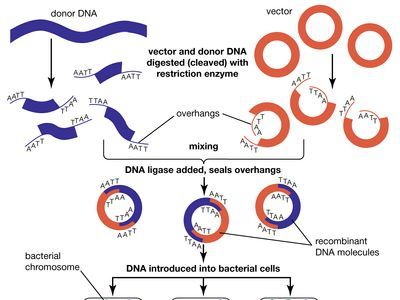In today’s rapidly advancing world, the fields of biology and technology have become more intertwined than ever before. This intersection of disciplines has given rise to the field of biotechnology, or biotech for short. But what exactly is biotech and how is it changing the way we live and interact with the world around us?
The Basics of Biotech
At its core, biotechnology is the use of living organisms or systems to develop products or processes that benefit society. This can range from the development of new pharmaceuticals and medical treatments to the production of biofuels and genetically modified crops. Essentially, biotech is about harnessing the power of nature and using it to solve some of the most pressing challenges facing humanity.
The Impact of Biotech
Biotechnology has already had a profound impact on various industries, from healthcare to agriculture. In the healthcare sector, biotech has enabled the development of groundbreaking treatments for diseases such as cancer, diabetes, and genetic disorders. It has also revolutionized the way we approach drug discovery and personalized medicine, tailoring treatments to individual patients based on their genetic makeup.
In agriculture, biotech has led to the development of genetically modified crops that are more resilient to pests, diseases, and environmental stressors. This has increased crop yields, reduced the need for harmful pesticides, and helped to ensure food security for a growing global population. Biotech has also played a significant role in the production of biofuels, which are sustainable alternatives to traditional fossil fuels.
The Future of Biotech
As technology continues to advance at an exponential rate, the possibilities for biotech are virtually limitless. From gene editing and synthetic biology to regenerative medicine and bioinformatics, the future of biotechnology holds immense promise for improving human health, enhancing food security, and safeguarding the environment.
One of the most exciting areas of biotech is CRISPR-Cas9, a revolutionary gene-editing tool that allows scientists to precisely modify DNA sequences in living organisms. CRISPR technology has the potential to cure genetic diseases, create designer crops, and even eradicate certain viruses. The possibilities are truly endless.
The Ethical Considerations of Biotech
While the potential benefits of biotechnology are vast, there are also important ethical considerations that must be taken into account. The ability to manipulate genetic material raises questions about consent, equity, and unintended consequences. It is crucial that we approach biotech with a thoughtful and responsible mindset, ensuring that our innovations are used for the greater good of society.
Conclusion
In conclusion, biotechnology represents the merging of biology with technology to create innovative solutions to some of the world’s most pressing challenges. From healthcare to agriculture, the impact of biotech is vast and far-reaching. As we continue to push the boundaries of what is possible, it is important that we do so with a focus on ethical considerations and societal impact. The future of biotech is bright, and the possibilities are limitless.


